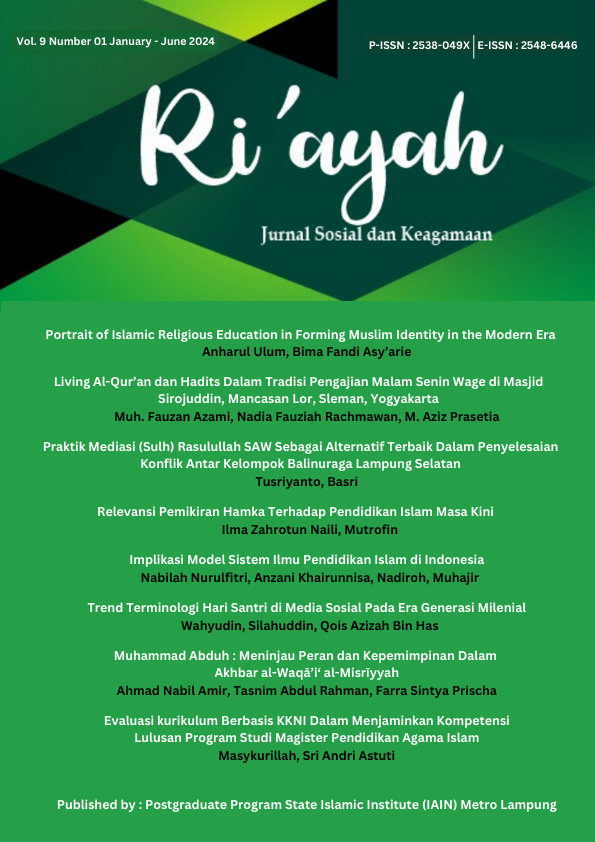Evaluasi kurikulum Berbasis KKNI Dalam Menjaminkan Kompetensi Lulusan Program Studi Magister Pendidikan Agama Islam
DOI:
https://doi.org/10.32332/riayah.v9i1.9287Keywords:
evaluation, curriculum, KKNI, magister, islamic educationAbstract
This paper is the outcome of evaluation research wihc aims to determine the suitability of curriculum documents for the Islamic Religious Education Masters Study Program (MPAI) with the currilum preparation guidelines of the Indonesian National Qualifications Framework (KKNI). The model used is the “antecendent” in stake countenance. The data collection methods is documentation. Documentation data analisis teqhniques; First, the cheklist technique produces quantitative data.Second; BCC alaysis technique (breakdown of CPL into study material and VPMK as a controlled comparison/standard with systematic logical thinking so dhat are clear tte realationship and suitability, and produces qualitative data. 57 percent of the MPAI curriculum complies with the standards, according to the quantitative research results. As for the qualitative aspect, there are still many discrepancies with the guideines for preparing the Higgher Education Curriculum (KPT). As a result, there has been inadequate planning to achieve the ideal profile of study program graduates. If there are quite a lot of lack in compiling the contents oef the curriculum document. This means that it is the same ass planning for the lack of coptence of graduates from that studi porgram to be achived. For this reasson, the results of this research can be used as one of the main considerations for each study program to revise its curriculum dokuments in order to ensure the realization of graduate comtptencies in accordance with the predetermined level of Indonesian human resour qualifications. This researc contributes to the curriculum cocument evaluation reseach metodology in the aspec of data analysis technique used, namely the BBC (breadown, Contingency and Congruence) technique







